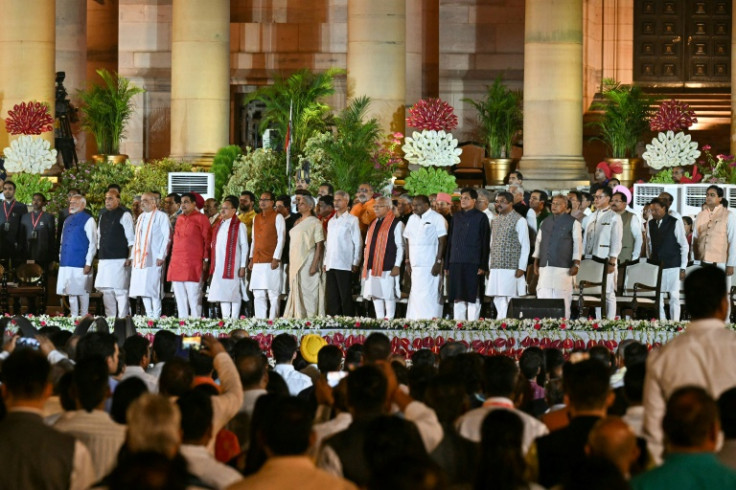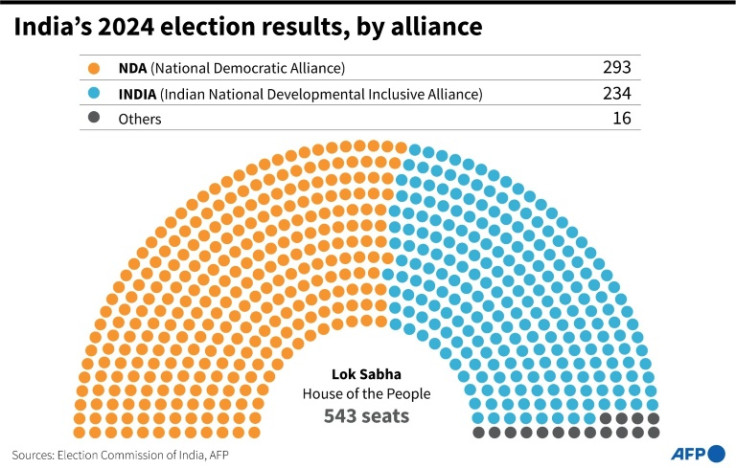Indian PM Set To Unveil Coalition Government At Cabinet Meeting

Indian Prime Minister Narendra Modi readied Monday to unveil his coalition government after a surprise election setback lost his Hindu-nationalist party an overall majority.
The 71 members of his government took the oath of office after Modi on Sunday, with 11 posts going to coalition allies who extracted them in exchange for their support -- including five in the top 30 cabinet posts.
There are no Muslim lawmakers among his third-term lineup, unlike his past two governments, both formed after his right-wing Bharatiya Janata Party (BJP) won a majority.
Modi's decade as premier has seen him cultivate an image as an aggressive champion of the country's majority Hindu faith, worrying minorities including the country's 200-million-plus Muslim community.
"Honoured to serve Bharat", Modi posted on social media after he was sworn into office, using the country's name in Sanskrit, a word dating back to ancient Hindu scriptures.
Modi had been forced into quick-fire talks with coalition partners in the National Democratic Alliance (NDA), whose 293 seats guaranteed him the parliamentary numbers to govern.
The portfolios assigned to each cabinet member have not been released, but Modi called his council of ministers "a great blend of youth and experience".
Indian media reported that Modi will hold his first cabinet meeting Monday evening, although there was no official confirmation.
The BJP old guard dominate the list, including Rajnath Singh, Amit Shah, Nitin Gadkari and Nirmala Sitharaman -- defence, interior and transport and finance ministers in his last government respectively.
Powerful BJP president Jagat Prakash Nadda is also included in the cabinet.
Earlier on Monday, Modi took his first action, approving the latest tranche of a cash handout for 93 million farmers.
Two-thirds of India's 1.4 billion people draw their livelihood from agriculture, which accounts for nearly a fifth of the country's gross domestic product.
Two posts were handed to each of the largest coalition members, the Telugu Desam Party (TDP), from Andhra Pradesh, and the Janata Dal (United) party of Bihar.
TDP is led by veteran politician Chandrababu Naidu, who began his political career with Congress, the biggest opposition party to the BJP.
JD(U) is headed by Nitish Kumar, who has a history of frequently changing his allegiance to and from the BJP to suit his interests.
He was one of the founding members of the opposition alliance that competed against Modi in this year's election -- but switched sides to support Modi just weeks before the vote began.
Seven of the 71 ministers are women, with two in the top cabinet.
Modi's chief rival Rahul Gandhi was nominated on Saturday to lead India's opposition in parliament, after he defied forecasts to help the Congress party nearly double its seats.
No date has been set for the opening of parliament, but Indian media have reported the new session is expected to begin next week, when the speaker will be elected.


© Copyright AFP 2024. All rights reserved.











